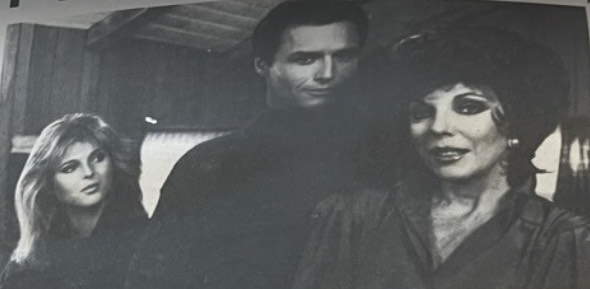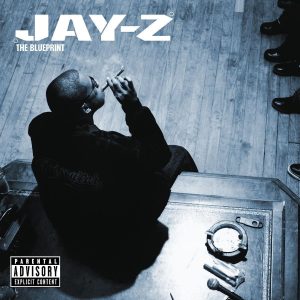THROWBACK THURSDAY: Sex and prime time
Planned Parenthood battled the TV networks 36 years ago

Catherine Oxenberg, Michael Nader and Joan Collins star in the nighttime soap opera “Dynasty.” Students in 1986 criticized the show, along with other nighttime soaps, for showing explicit sex scenes.
October 20, 2022
One quiet evening at home, you decide to venture downstairs to the kitchen to find some munchies while studying for your chemistry test. On the way, you pass the den where your little brother (between the age of 5-7) is watching TV, but you notice he is engulfed in an explicit love scene which has passed all sense of decency. What do you do now?
Planned Parenthood has recently launched a national newspaper campaign which accuses the television industry of taking “an unrealistic and irresponsible” view of sex, while it also refuses to advertise information about contraceptive measures.
Much of the campaign is focused on the three major networks refusing to permit contraceptive advertising on television.
Planned Parenthood argues that television portrays sex as “an attractive form of recreation,” and fails to mention the potential consequences of it.
“Television almost goes as far as to portray sex as a great winter sport,” sophomore Colin Schott said.
Television is a great “pervasive medium” and is watched an average of six hours a day by youngsters. Planned Parenthood believes the major networks should take some responsibility for the millions of teenage pregnancies in the United States each year. Students feel that shows like “Dynasty,” “Moonlighting,” “Dallas,” “The Colbys,” “Hotel,” “Miami Vice,” “Knots Landing” and all the daytime soap operas are too explicit when it comes to sex.
In watching these shows, Planned Parenthood explains that a teenager may conclude that casual sex between two young adults is permissible.
Planned Parenthood also believes that networks do understand that they have the power to influence young people. If not, then why are they making such a consorted effort to fight drug abuse with a prime time TV campaign aimed at youngsters?
Students believe that the networks have the power to influence youngsters. “The sex on TV inspires curiosity. They never show it as anything but enjoyable,” junior Meredith Bell said.
“Some people see that the way a certain actor or actress acts gets lots of attention, and everyone likes him or her and wants to act like the actor or actress,” senior David Litzau said. “Youngsters want to be like the actors and actresses on TV,” Erika Wilkens said.
A solid stand has been taken by Planned Parenthood that television “hammers” the desirability of sex into the heads of young and very impressionable children without educating them about the consequences. “Lack of education leads to more teenage pregnancies,” sophomore John Guttery said.
“Television needs to make more of a point about love instead of just casual sex,” sophomore Michelle Mellgren said.
“There needs to be rules and regulations to keep producers from allowing their actors to speak or act in unsuitable ways on TV,” senior Ginger Berry said.
With the pressure received from Planned Parenthood, there has been some evidence of change among the networks. In the Dec. 1 episode of “Cagney & Lacey,” (CBS) Mary Beth Lacey (Tyne Daly) and husband Harvey (John Karlen) decide to talk to their 16-year-old son about contraceptives and in the Nov. 3 episode of “Kate & Allie,” Allie (Jane Curtin) receives a phone call from a mother who caught her son and Allie’s daughter about to go to bed with each other. This causes Allie to have a talk with her daughter (Alison Smith) about the responsibility which accompanies sex.
Students shared some solutions to the damage done by sex on television. “Television producers need to watch their limits of explicitness,” junior Alysa Lozano said.
Planned Parenthood would like television and its viewers to realize that sex is a very complex business, even for mature adults.
This story was originally published in The Shield on Dec. 19, 1986.






